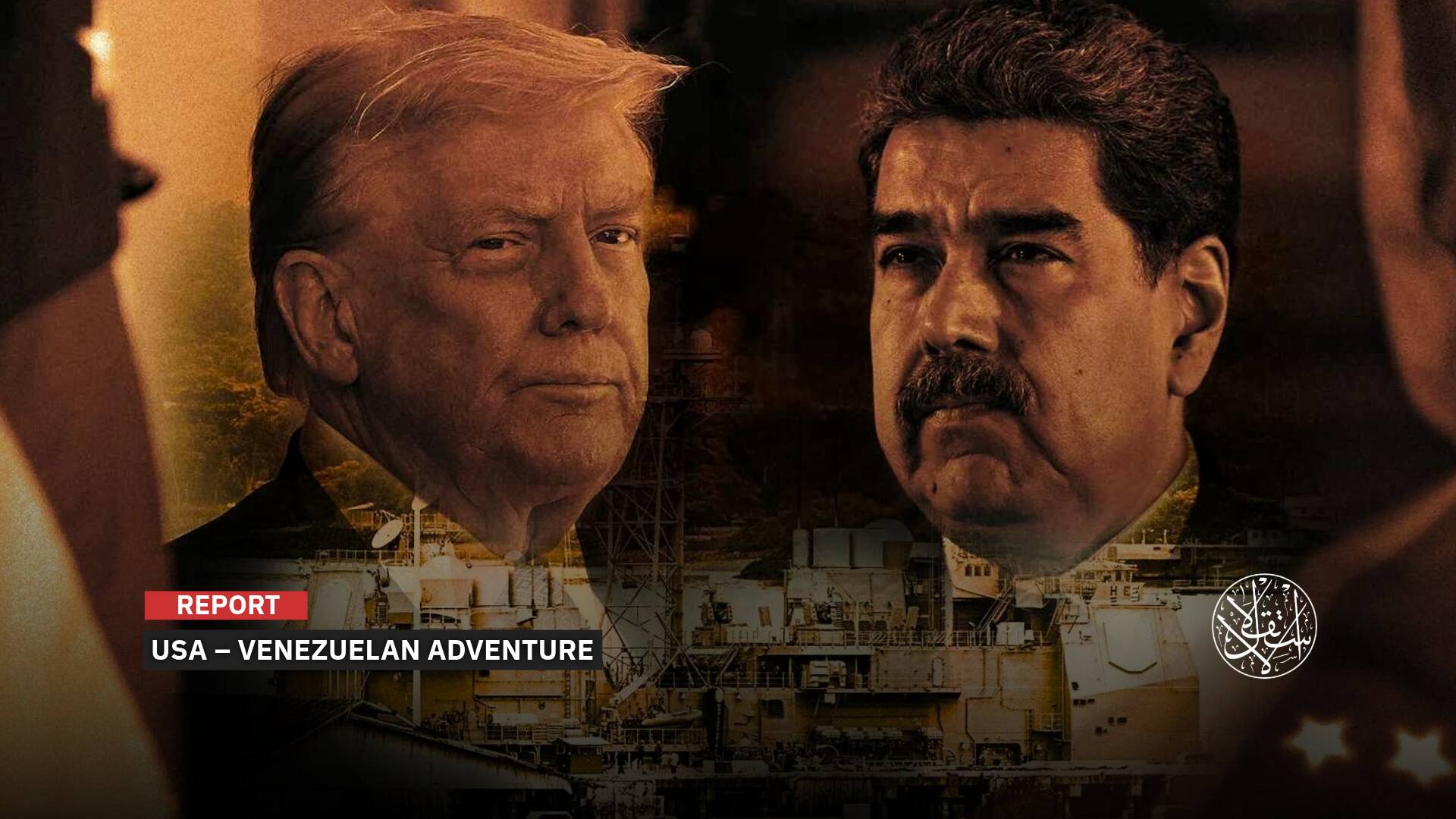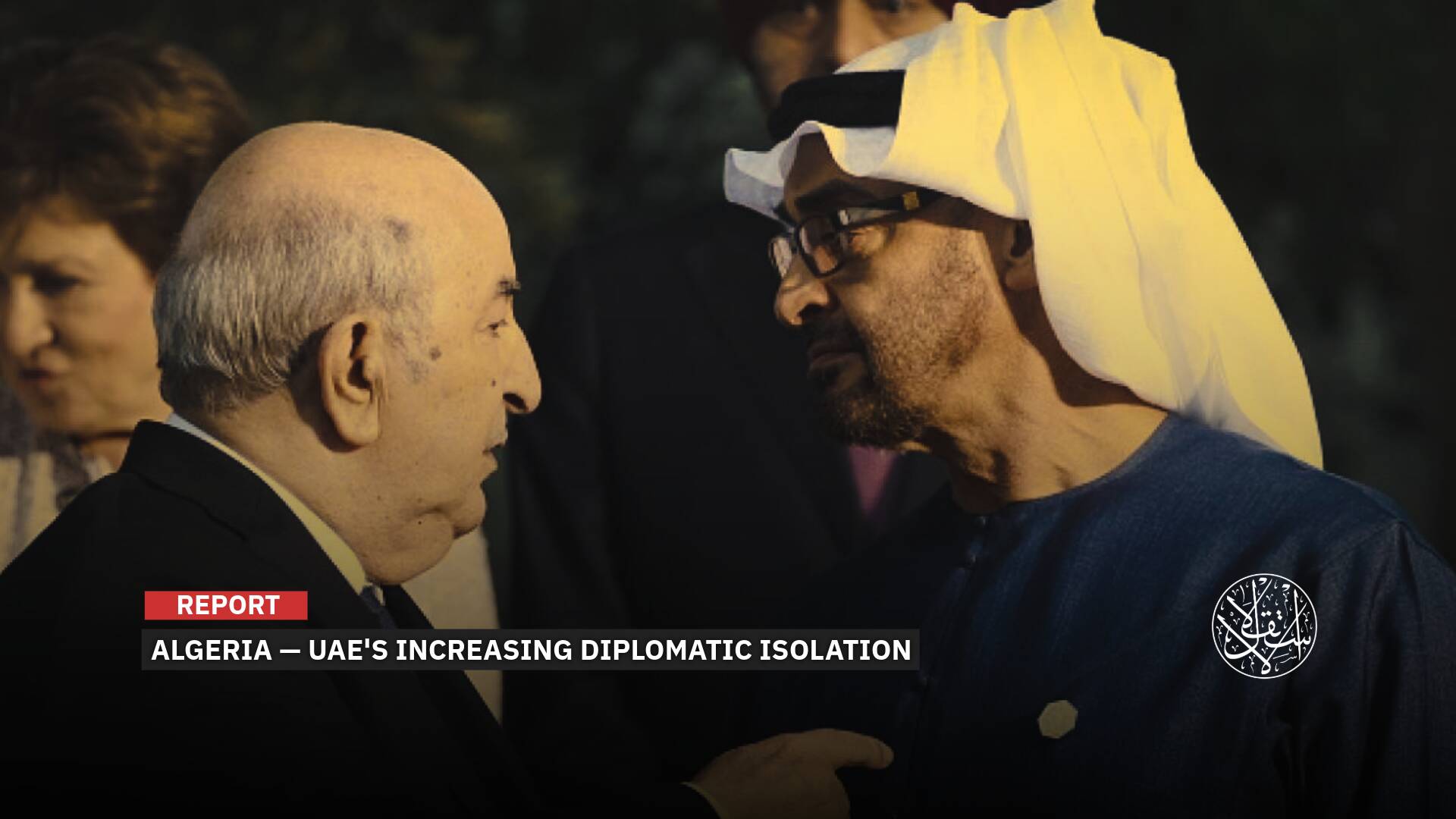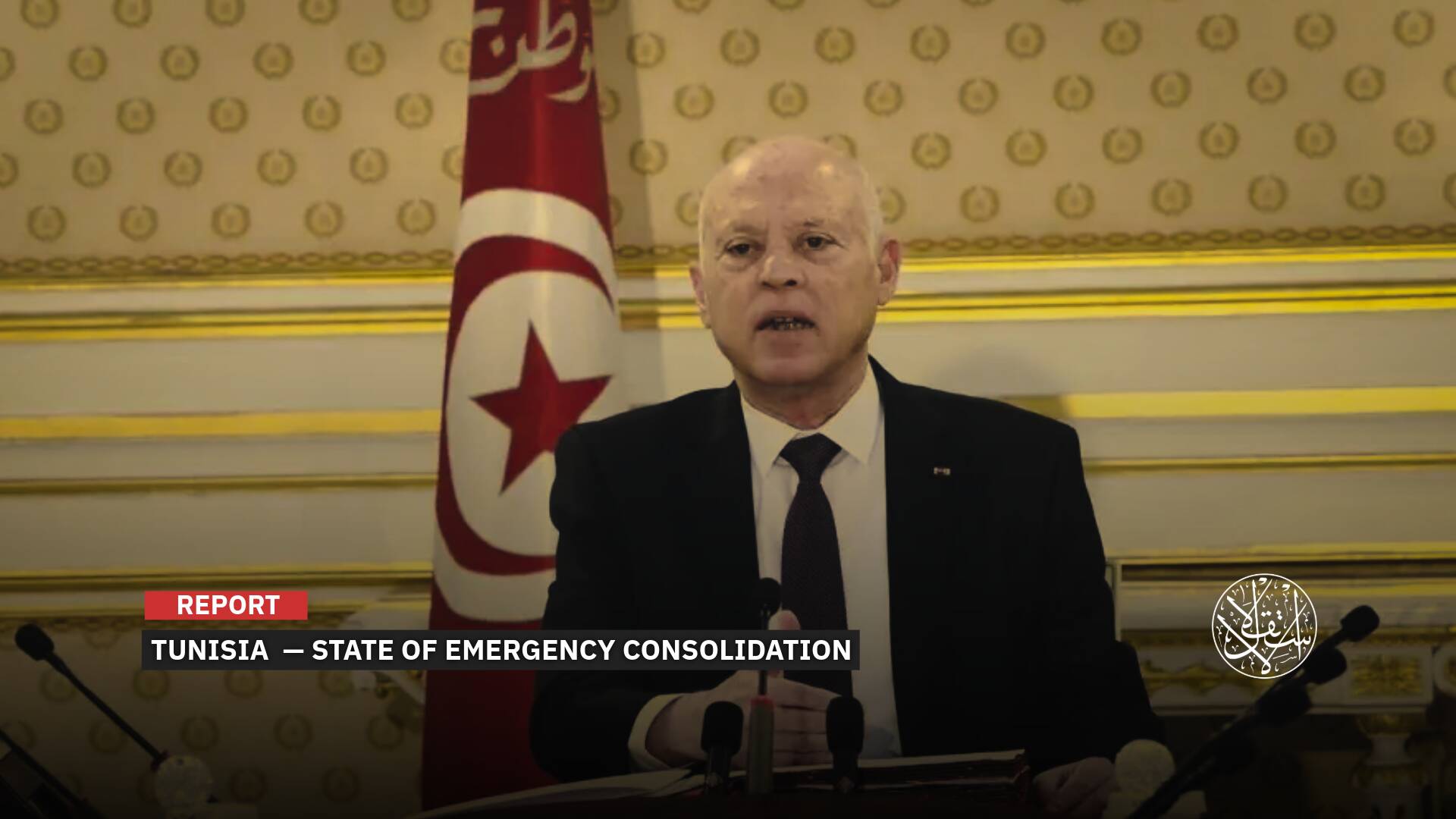Washington Looks West: Indicators of Declining American Interest in the SDF

The SDF said its areas are being attacked by Turkiye, the Syrian regime, and ISIS.
With each new focus of the United States on international affairs and its necessity to begin generous financial and military support to its allies, one of them, the Syrian Democratic Forces (SDF), has started to play a tune of concern about the potential damage to its influence, as a result of the reduction in American support.
The Washington-backed SDF, which serves as the military umbrella for the "self-administration" in northern and eastern Syria, becomes worried about the future of its influence, particularly following recent developments in the Gaza Strip.
For instance, since October 2023, the administration of President Joe Biden has shown strong commitment to supporting "Israel" militarily against the Islamic Resistance Movement (Hamas), ensuring its qualitative superiority in the region.
This American move has directly affected Washington's funding for Ukraine as well, which has been resisting the ongoing Russian invasion since February 2022 and has also suffered from reduced American support.
SDF's Appeal
Thus, the leader of the Syrian Democratic Forces militia, Mazloum Abdi, warned that the return of the ISIS organization had become "imminent" in northeastern Syria.
In an interview with Al-Monitor on April 11, 2024, Abdi said that ISIS is exploiting the escalating security issues in the Middle East and the United States must commit to meaningful engagement with self-rule in northeastern Syria and support the SDF in its fight against ISIS.
"We ought to be receiving far more financial support from our allies. The opposite is happening. Funds are shrinking. The U.S.-led coalition's resolve to defeat Daesh [ISIS] has weakened," Abdi said.
"The conflict in Gaza has also boosted Daesh. It is distracting the anti-Daesh coalition and their focus on this region has diminished as a result," he said.
He noted that ISIS is exploiting the weaknesses resulting from the U.S. refusal to officially recognize the self-administration in northeastern Syria as a partner in communication in the international alliance against the organization, despite the alliance between the SDF and Washington.
The U.S. military entered Syria in September 2014 to carry out airstrikes against ISIS, and relied at that time on Kurdish groups to fight the organization east of the Euphrates River.

After a period, specifically in October 2015, the Syrian Democratic Forces (SDF) was established with a mix of Arab and Kurdish and some other ethnicities, becoming a ground force for Washington and supported with weapons and air cover.
The SDF's strength is estimated to be around 45,000 fighters, with more than half of them being Arabs, according to a statement from the U.S. Department of Defense.
Washington declared the defeat of ISIS in March 2019 in its last stronghold in the village of al-Baghouz in Deir ez-Zor, when thousands of its members, leaders, and families surrendered and were placed in prisons and camps run by the SDF with U.S. support.
However, ISIS cells scattered in uninhabited desert areas continue to carry out attacks against the SDF.
In the face of this, the SDF considers its relationship with the international coalition against ISIS led by Washington to be crucial, ensuring its continuity as the main source of its financial, military, and logistical support.
Triple Encirclement
Officially, the SDF states that the areas of the "self-administration" in northeastern Syria are under attack by three parties: Turkiye, the Syrian regime, and ISIS.
This indicates a threat to the U.S. presence in northeastern Syria, which is concentrated in specific areas in three provinces: al-Hasakah, Deir ez-Zor, and ar-Raqqah, where U.S. forces are stationed at around 18 bases and military points.
Washington justifies its presence there by fighting ISIS and protecting oil wells, especially since the SDF controls about 90% of Syria's oil fields and 45% of its gas production.
The SDF's media spokesperson, Siamand Ali, stated on February 25, 2024, that the SDF's anti-terrorism operations indicate that the latter has begun to regroup.
However, it seems that the SDF has begun to sense a decline in U.S. focus on its areas of control in northeastern Syria, especially after the Israeli war on Palestinians since October 2023.

This is especially as the Turkish side has intensified its strikes on areas held by the Syrian Democratic Forces (SDF) recently, employing a military tactic that places significant pressure on the latter after Ankara postponed a military operation it intended to launch against it in northeastern Syria in 2022.
Since the beginning of 2024, Turkiye has focused on attacking SDF positions with drones and targeting its leadership, particularly targeting oil and gas facilities and infrastructure.
Experts and analysts believe that Turkish drones are disrupting SDF movements, and Ankara will continue its drone warfare until conditions for ground penetration are provided.
The Jusoor Center for Studies noted that recent Turkish attacks since February 2024 reflect an increase in the level of Turkish intelligence penetration into areas where the SDF and the Kurdistan Workers' Party (PKK) are deployed in Syria.
The center emphasized that this could lead to a series of assassination operations targeting leaders of the first or second ranks in the party and its affiliated organizations in Syria, especially those involved in military or security operations against Turkish military or civilian interests.
It was added that these Turkish strikes aim to carry out more attacks on the economic resources of the SDF and to deplete its military and security leadership.
Turkiye rejects the presence of a separatist entity on its southern borders and has managed to prevent it through cooperation with factions of the Syrian National Army.
Reasons for Concerns
In this context, Syrian journalist Hassan al-Sharif believes that "the SDF militia is trying to draw lessons from the Ukrainian war and the weakening of U.S. funding, which has led in some aspects to a tilt towards Russia through seizing more territory and occupying it in the eastern regions of the country."
Ukrainian President Volodymyr Zelenskyy calls for assistance to enable Ukrainian forces, which suffer from a growing shortage of ammunition, to confront Russia.
However, political divisions in Washington hinder its approval, and the aid, valued at $60 billion, remains frozen in the U.S. Congress.
Al-Sharif added to Al-Estiklal, "The SDF is directly and rapidly affected by any American distraction, in addition to European countries, in new and especially hot files, such as the war in Gaza."
"The SDF suffers from internal and complex tensions, weakening it politically in the face of any reduction in international communication with it."
The journalist concluded, "Therefore, the SDF fears that tensions in Palestine will prolong, and Israel will receive full American support, which constitutes significant pressure on its influence, especially in terms of the influx of arms and equipment, which is a crucial point for it with security consequences.
"There are fears that the environment supporting the SDF in northeastern Syria will erode over time, allowing for more pressure on it to make concessions to the Bashar al-Assad regime, with which negotiations are underway under Russian auspices regarding the shape of the region in northeastern Syria."
Negotiations are underway between Assad and the SDF under Russian sponsorship on the fate of areas under the latter's control in northeastern Syria.
This comes despite the fact that the majority of the regime's conditions are rejected by the SDF, as they weaken its authority there in favor of Assad, especially in the oil sector, which is the main resource for these militias currently, along with Damascus's desire to manage the border crossings in al-Hasakah province with Iraq, according to al-Sharif.
He pointed out that "the factor that the SDF still fears is the movement of Arab tribes that rose up against it, for without American support and position, it would have lost its control over the entire areas of Deir ez-Zor that it controls on the left bank of the Euphrates."

Since 2012, the "Self-Administration" has been viewed as ruling by the strength of American arms, merely an illegitimate de facto authority, and today it faces an "open war" from Arab tribes in Deir ez-Zor.
On August 27, 2023, sons of several Arab tribes in the left bank of the Euphrates River in Deir ez-Zor province rose up against the SDF, bearing arms and driving them out of several villages and towns there, before Washington intervened to calm the situation and halt the clashes.
At that time, the goal of the Arab tribes, according to their statement, was to put an end to the SDF's policies that are alien to the Arab region and its violations against them, including the theft of the region's oil and gas wealth.
The Arab tribes then demanded that the international coalition led by the United States establish an "independent civilian administration that formulates its policies independently to manage the region without the influence of the SDF and others."
In the face of this, the Kurdish Self-Administration failed to gain international political recognition, yet it continues to work on consolidating its role in northeastern Syria.
In December 2023, the Kurdish Self-Administration resorted to the public relations firm Brownstein Hyatt Farber Schreck to manage lobbying activities in the United States.
According to the contract, revealed by Anadolu Agency, the company will work on convincing and educating decision-makers in the U.S. administration that the so-called "Self-Administration of North and East Syria" is the best option to find a permanent solution to the Syrian crisis.
The contract also stipulates the company's commitment to organizing meetings with leaders of the House and Senate, as well as senior officials in the Departments of State, Defense, and Commerce, and engaging in pressure activities to encourage investment in northeastern Syria.
The Self-Administration demands "international recognition of its areas and legitimizing the institutions and military forces deployed" in northeastern Syria. However, the Syrian opposition rejects this, considering it a "secession project that tears apart Syria's territorial integrity."









